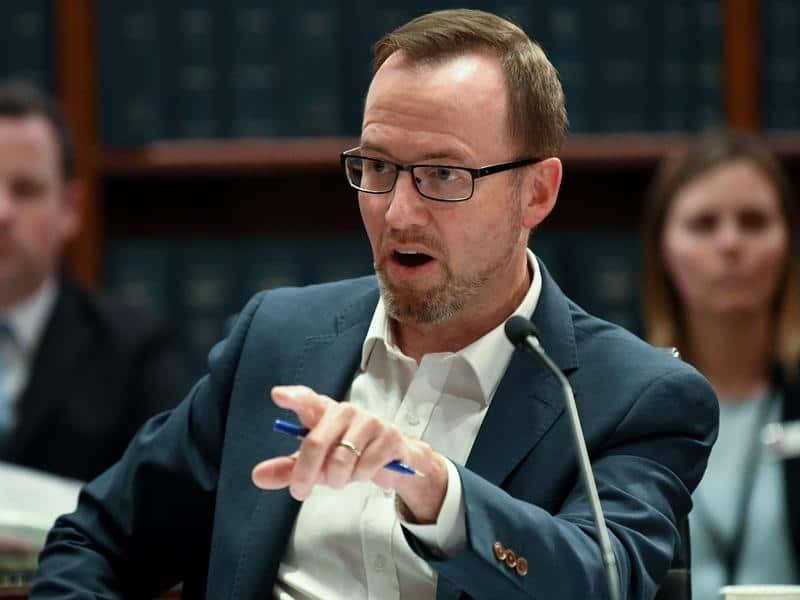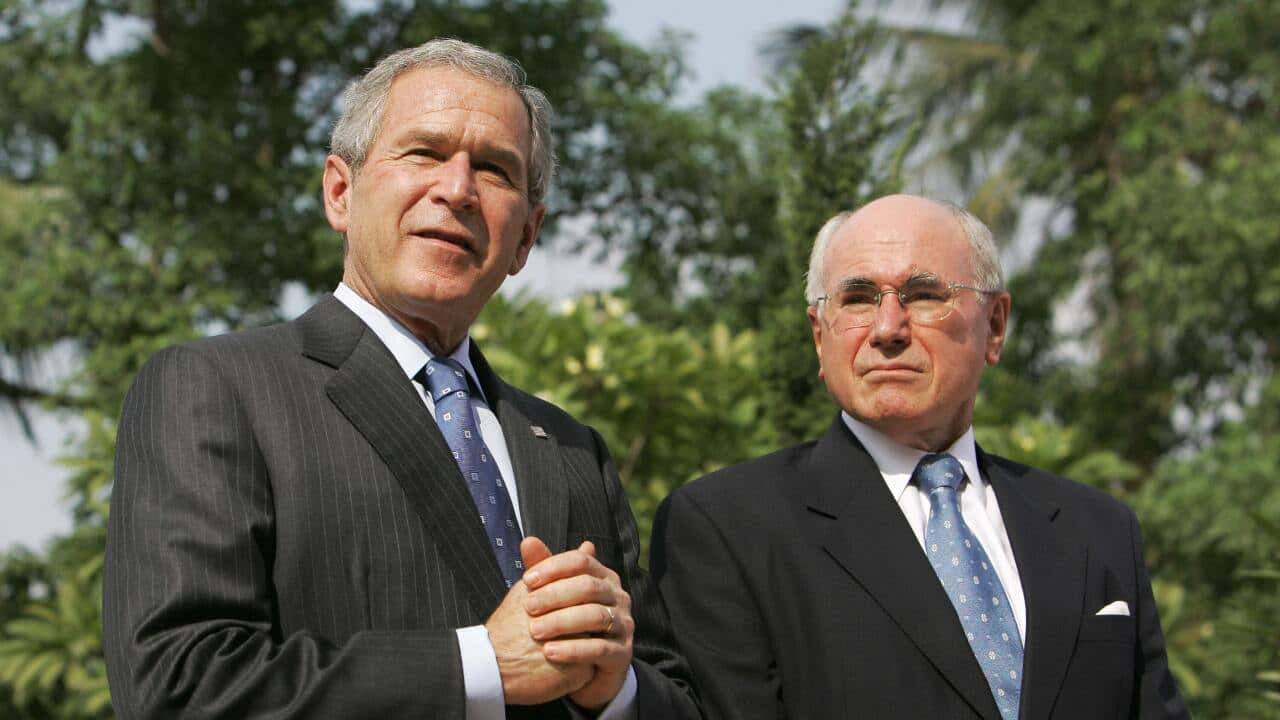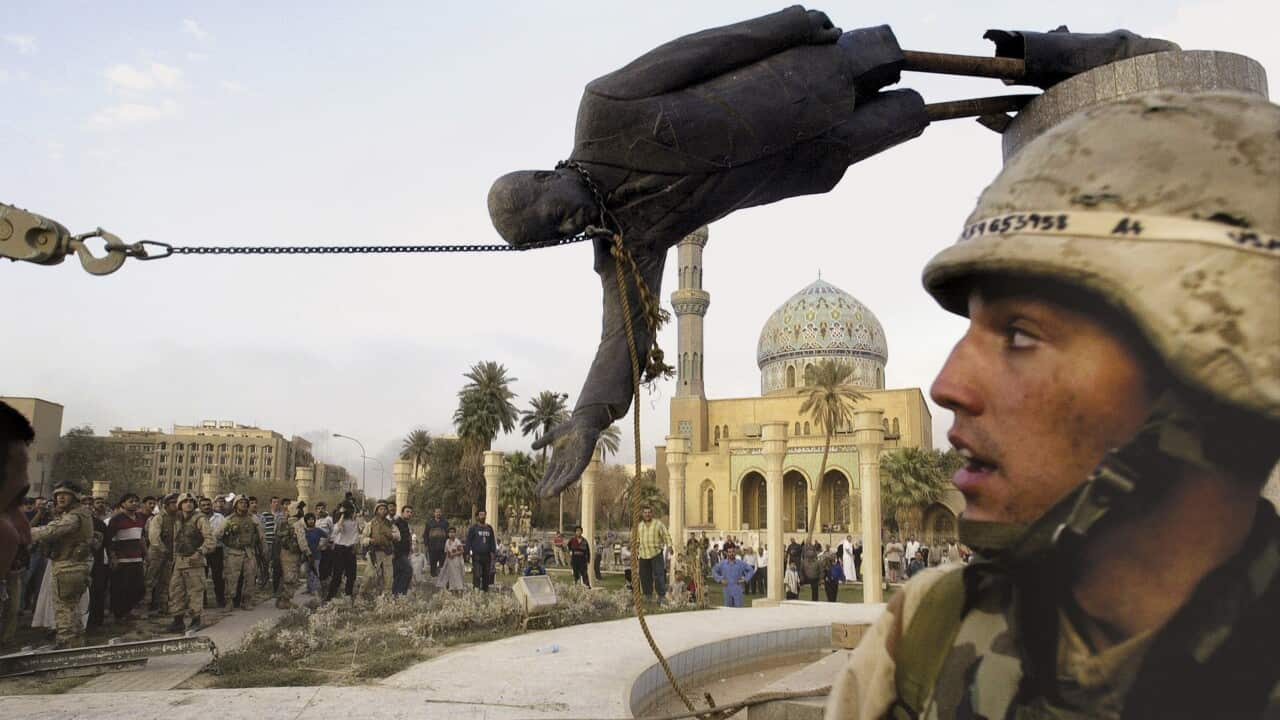KEY POINTS:
- Politicians are calling for an inquiry into Australia's invasion of Iraq.
- Australia was one of four countries to invade Iraq, something the UN has called illegal.
- A blistering UK report found former prime minister Tony Blair had committed to the war "no matter what".
Calls for an inquiry into Australia's decision to join the Iraq War are growing on the 20th anniversary of the invasion.
Then prime minister John Howard was one of four world leaders to flout United Nations warnings by invading Iraq in 2003, a push stoked by claims Saddam Hussein's regime possessed weapons of mass destruction (WMDs).
The invasion saw Iraq plunge into sectarian bloodshed, including, which . WMDs never materialised.

Human Rights Watch estimates the war cost around half a million lives, mainly Iraqi civilians. Credit: Lynsey Addario / Getty Images
Its blistering report also singled out then-UK prime minister Tony Blair, who it found and had committed to the war “no matter what”.
No Chilcot equivalent has been undertaken in Australia. But as Australia deepens its military ties to the US amid talk of tension in the Indo-Pacific, politicians past and present are pushing to change that.
'Went to war on a lie'
, and insisted Hussein's regime intended to resume a WMD program.
"I don't believe that, on the basis of the information that was available to me, it was the wrong decision," he said in 2016.
As opposition leader at the time, Simon Crean made the “important but hard” call to oppose Mr Howard’s push for war before UN inspectors could assess the WMD claim.

Then opposition leader Simon Crean (left) and prime minister John Howard addressing personnel from HMAS Sydney ahead of its deployment to the Iraq war. Source: AAP / Mick Tsikas
Mr Crean said the media had joined a “stampede” urging Australia to war, but had failed to question the evidence presented.
“On the intel that I had, I was not convinced that there was certainty that the WMDs existed,” he said.
“Any basic questioning of that fact would have, I think, led objectively to that conclusion.”
Australia’s decision to invade Iraq was made without a vote in parliament, and recently-released documents show it was only briefly discussed by cabinet.

The Chilcot inquiry was damning of former UK prime minister Tony Blair. Credit: AAP
“It is essential if we're to be engaged in the future, parliament has to be involved.”
Mr Crean said, while some lessons had been learned, the "uncertain times" facing the globe made a Chilcot-style inquiry particularly important.
“It needs to look at the extent of the evidence that existed at the time, [but also] how decisions were taken,” he said.
'A political issue'

Andrew Wilkie says the 'political dimensions' of the invasion need to be explored. Source: AAP / AAP
Mr Wilkie said while the intelligence community had provided a range of assessments from "quite cautious through to quite hawkish", all were more cautious than the positions being stated publicly by Mr Howard.
But two subsequent inquiries were deliberately "narrow in their scope" and designed to "shift the blame to the spooks (members of the intelligence community)" for the Iraq invasion, he said.
“The political dimension of it was explicitly excluded from those two inquiries, and this is fundamentally a political issue," he said.
“The government was just so obsessed with the bilateral relationship, and the importance [of] doing whatever the US wanted, that we were locked in.
"In some ways, it had little to do with Iraq, it was all about the bilateral relationship with Washington.”
Prime Minister Anthony Albanese last week deepened Australian reliance on the US in the Indo-Pacific, .
Mr Wilkie said the deal showed "we are locked into the US more than ever", and he remained concerned "that Australia refuses to carve out a more independent foreign and security policy".
The independent believed refusing to join the Iraq invasion, as Canada did, could have actually strengthened the relationship.
"The world didn't open up and swallow Canada ... We would have demonstrated that we can't be taken for granted. It might have made the US work a bit harder on the relationship," he said.
"We don't need to do everything the Americans tell us to do."

(left to right) Prime Minister Anthony Albanese, US President Joe Biden and UK Prime Minister Rishi Sunak announce the AUKUS submarine deal in San Diego. Source: Getty / Anadolu Agency
Senator Cash said Australian troops deserve recognition for their role in removing a “brutal dictator”.
“It is clear that mistakes were made in the course of the war, however, we should not be abandoning our strong alliance with the United States and the United Kingdom,” she told the Senate.
“We on this side of the chamber do not shy away from our strong support of the United States and the United Kingdom.”
Senator Cash repeated the claim that the invasion was launched on the basis of the “best available advice at the time”.
'Betrayal of democracy'
Greens senator David Shoebridge warned the AUKUS deal was struck without Australian institutions ever having undergone a "real reckoning" with the "disaster" of 2003.
"We have some sense of the shocking costs, especially to the Iraqi people. But there's never been accountability," he said.
"At a time in history when the drums of war are beating again, and those same forces are pushing us down a pathway towards conflict with China, it couldn't be more important to fully review the mistakes that drove us to war in Iraq."
The AUKUS deal will see Australia host rotations of American and British submarines this decade and, in a detail not revealed to the public until the announcement, be forced to dispose of nuclear waste on home soil.
Senator Shoebridge said a "cult of secrecy" hanging over Australian national security discussion was central to the Iraq invasion, and remained today.
“A government that was committed to a genuine national debate on our foreign affairs and defence priorities would have been honest with the Australian people well before they signed the [AUKUS] deal, so we could assess the real cost of being involved at that scale with the United States military," he said.
"The addiction to secrecy is a betrayal of democracy."
, saying Australia's previous submarine fleet "wasn't designed to sit off the Chinese coast sinking Chinese submarines".
Defence Minister Richard Marles insisted on Sunday that any decision to join any future conflict over Taiwan would be a matter for the government at the time, dismissing suggestions the deal came with an implicit commitment to intervene.

Greens senator David Shoebridge warns a 'cult of secrecy' hangs over national security decision-making. Credit: AAP
But Senator Shoebridge echoed Mr Keating's critique, saying AUKUS was not about protecting the Australian coastline but to "project lethal force into the Taiwan Straits and into the South China Sea".
"That is setting the scene for Australia to be dragged into another of America's disastrous wars," he said.










